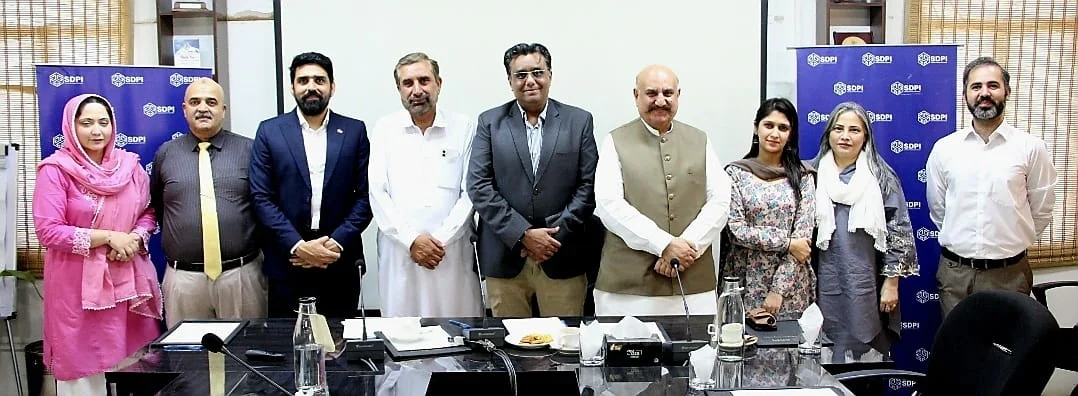Islamabad, 26 Apr, 2025: Experts, policymakers, and academics at a roundtable stressed the need for urgent reforms in taxation and regulations, as the tobacco industry continues to sidestep enforcement, target youth, and dilute anti-smoking efforts.
The roundtable spotlighting Pakistan’s faltering tobacco control efforts was organized by Sustainable Development Policy Institute (SDPI) in collaboration with Vital Strategies here on Fr hosted a high-stakes roundtable spotlighting Pakistan’s faltering tobacco control efforts here. .
Dr. Waseem Iftikhar Janjua, SDPI Advisor, unpacked the complex dynamics of Pakistan’s tobacco taxation, citing deliberate strategies by the tobacco industry such as differential shifting, overpricing, brand diversification, and down-trading to maintain consumer addiction and evade taxes.
READ MORE: Pakistan Tobacco Exports Surge by 103.65%
“The industry is exploiting the lack of regulations, especially in e-cigarettes and nicotine pouches,” Dr Janjua said, adding that “there’s a consistent failure to enforce policy due to limited capacity and regulatory ambiguity.”
He further said: “The fight against tobacco is evolving. We’re up against an industry designed to kill half its users and it’s targeting our youth.”
Muhammad Asif Iqbal, Managing Director of SPDC, stressed the need for simplified, single-tier tobacco taxation to curb manipulation. “The primary goal of tobacco taxation should be to reduce consumption, especially among the youth,” he said.
“The multi-tier tax system creates loopholes, enabling the industry to introduce variants and mislead both regulators and consumers.”
Dr Farah Rashid from NUST warned of alarming trends in youth smoking, with nicotine use starting as early as primary school. The issue, she stressed, is compounded by increasing exposure to unregulated products and targeted advertising.
Dr Waseem Saleem of WHO’s MPOWER initiative critiqued Pakistan’s inconsistent approach to tobacco control, likening it to “two steps forward and four steps back.”
Despite the implementation of the track and trace system on January 1, 2024, only a fraction of tobacco production is being captured. “An additional 2–3 billion sticks were registered, which is still drastically below the real production,” he pointed out.
READ MORE: Taxing Tobacco is Vital to Reduce Consumption and Saving Lives, Experts
Mr Ajmal Shah from the Khyber Pakhtunkhwa government underscored the regional challenge of illicit tobacco trade, labeling it the province’s biggest barrier. He shared that the KP government is ramping up policy and enforcement efforts to tackle it.
Dr Minhaj us Siraj, Executive Director of the Health Syndicate, called for stronger government resolve .
“The industry manipulates data and floods the media with misinformation just before the budget. We must counter with evidence-based proposals,” he urged.
Earlier, Syed Ali Wasif Naqvi from SDPI, while moderating the roundtable, opened the discussion with pressing statistics and concerns over the affordability of premium cigarette brands in Pakistan.
Where average taxes on tobacco sit at 58% far below the 70% recommended under WHO’s Framework Convention on Tobacco Control (FCTC) Article 6.









